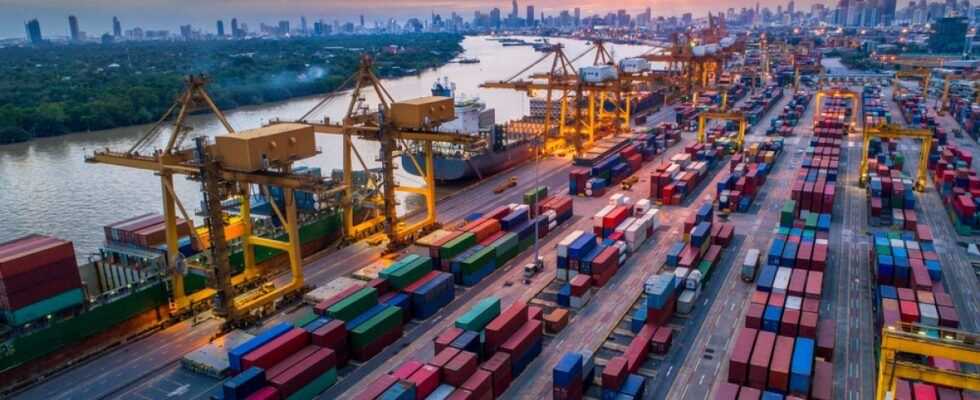In the German economy, despite delivery bottlenecks and uncertainties due to the corona pandemic at the turn of the year, according to a survey, confidence generally dominates. “A broad optimism can be seen for the year 2022”, according to a study by the employer-related Institute of the German Economy (IW). However, the Federation of German Industry and the German Chamber of Commerce and Industry (DIHK) also see clear risks. According to the DIHK, the crisis is having a huge impact on economic development. The consequences of the Omikron virus variant are also difficult to assess.
Probably back to pre-pandemic levels in 2022
“The effects of Omikron are currently unmanageable, the information from the countries already affected is too contradictory,” said IW boss Michael Hüther. “But I assume that the economic trends of normalization and catching up will hold up with high order backlogs.”
The vast majority of the 48 trade associations surveyed by the IW between mid-November and the beginning of December are expecting better business than in 2021; a decline in production is not expected in any industry. “The German economy is coming back from a catching-up year,” explained Hüther. “Demand and the need to catch up are high, and at the same time there is high uncertainty in view of the development of the pandemic.” In his estimation, the German economy should reach the level before the Corona crisis in the coming year.
Inflation, increased costs, delivery problems
According to calculations by the DIHK, the pandemic cost Europe’s largest economy together almost 400 billion euros in economic output in 2020 and 2021. “Unfortunately, it currently does not look as if we can catch up quickly in the new year,” said DIHK President Peter Adrian of the German Press Agency. Additional concerns were the rise in inflation, the sharp rise in energy and raw material costs and interrupted supply chains.
The Federation of German Industries (BDI) also sees many risks for the economy. “We don’t know what restrictions we have to live with for the domestic economy,” said BDI President Siegfried Russwurm. If Germany achieves a high vaccination rate, the Corona issue will hopefully soon take a back seat in the summer. “But there is a great risk that the fourth wave will spread further in the coming weeks and that a fifth wave will have the world under control around Easter. Because the vaccination rates are too low, almost everywhere in the world.”
According to Russwurm, the decisive factor for German industry is the sale of capital goods. “Do customers expect good business for themselves and are they brave enough to invest in new machines and new systems – or are they more cautious?”
Digitization brings growth to the information economy
According to the IW survey, mechanical engineering and steel and metal processing are particularly optimistic. In view of the bulging order books, the mechanical engineering companies recently raised their production forecast for 2022. The leasing association and the information industry, which are benefiting from the demand in the course of digitization, also expect significantly better business than in 2021.
The majority of the industries (35) expect moderate growth in 2022, including the gastronomy, tourism and retail sectors particularly affected by Corona restrictions. The shortage of skilled workers is a burden in what is actually a booming construction industry. The IW attributes the generally good production prospects of the industry in part to increasing investments worldwide, from which above all manufacturers of capital goods “Made in Germany” should benefit. “Most industries are also assuming that the supply chain problems will ease in the coming year,” reported Hüther.

The finance sector and magazine publishers, on the other hand, do not expect any major leaps. The mining, shipbuilding and marine technology, leather industry and paper mills also expect a steady business situation.
Employees desperately wanted
According to the survey, the chances of increasing employment are good in many industries. Accordingly, 21 associations expect a plus. These include the pharmaceutical industry as well as the metal and electrical industries. In the construction industry and in the trades, companies are desperately looking for staff anyway. A further 19 sectors are assuming the same number of employees, 8 branches of the economy from falling employment. In finance, for example, the changed customer behavior – more online banking and less use of branches – will likely eliminate jobs.
(tiw)
